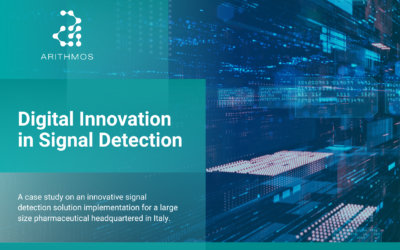Randomized trials are the gold standard in evaluating the efficacy of new healthcare interventions.
However, despite their ability to potentially provide causal estimates of the efficacy of new treatments, their general nature in relation to patients in the real world is often unclear. Strict exclusion criteria may lead to participants in trials differing from the general clinical population.
Post-authorization studies (PAS) offer means of further characterizing the safety and effectiveness of new healthcare interventions in real world clinical settings and are by now widely used in the European Union and the United States.
This article aims at analyzing the American and European approach to post-authorization studies and their regulatory background.
Post-authorization Studies in the EU
In the European Union, legal provisions covering requirements for Post-Authorization Studies (PAS) have been introduced by:
- DIR 2001/83/EC;
- REG (EC) 726/2004;
PAS studies could be based on either interventional or pharmacoepidemiological approach depending upon the specific research objective.
Post-authorisation studies may be imposed to Marketing Authorisation Holders/Applicants by competent authorities in the EU Member States or the EMA in accordance with DIR 2001/83/EC or REG (EC) 726/2004 as amended, or conducted voluntarily by MAHs, and could either be:
- Clinical trial
- Requirements of DIR 2001/20/EC apply
- Non-interventional post-authorisation study
- Requirements of DIR 2001/83/EC and REG (EC) 726/2004 apply
Post-authorisation studies in the EU can be further characterised as Post-authorization Safety Studies (PASS) and Post-Authorisation Efficacy Studies (PAES).
Post-authorisation Safety Study (PASS)
Post-authorisation Safety Studies are legally defined by DIR 2001/83/EC Article 1(15) in the following way:
‘Any study relating to an authorised medicinal product conducted with the aim of identifying, characterising or quantifying a safety hazard, confirming the safety profile of the medicinal product, or of measuring the effectiveness of risk management measures’.
PASS studies are characterized by the following :
- May be clinical trials or non-interventional studies;
- May be imposed as an obligation of marketing authorisation or conducted voluntarily;
- Specific requirements are described in implementing Regulation (EC) 520/2012 chapter VIII and GVP Module VIII on PASS;
Post-Authorisation Efficacy Studies (PAES)
A Post-Authorisation Efficacy Study (PAES) may be imposed for:
- Conditional marketing authorisations;
- Marketing authorisation under exceptional circumstances;
- Marketing authorisation for ATMP;
- Paediatric use of medicinal product;
- Pharmacovigilance referral procedure for safety reasons;
- Covers clinical trials and observational (non-interventional) study designs.
In addition, PAES may be imposed as an obligation of MA within the scope of Delegated Regulation (EU) 357/2014 which lays down the specific situations:
- when it may be necessary to complement the data available at the time of authorisation with additional information concerning the efficacy of a medicinal product;
- when post-authorisation information may require significant revision of previous efficacy evaluations and call for additional, confirmatory efficacy data, while the marketing authorisation is maintained.
Requirements for Disclosure of Non-Interventional Studies reports
The EU has introduced the obligation of PAS data disclosure which is implemented through the following:
- Public register of non-interventional post-authorisation studies (PAS) hosted and maintained by EMA;
EU pharmacovigilance legislation requires EMA to make public the protocols and abstracts of results of non-interventional post-authorisation safety studies (PASS) imposed in accordance with Article 10 or 10a of Regulation (EC) No 726/2004 or with Articles 21a or 22a of Directive 2001/83/EC [EU RMP Category 1 + 2].
Annex III of the Commission Implementing Regulation (EU) No 520/2012 further specifies that the final report of imposed non-interventional PASS must provide the date of making it public (in EU PAS Register).

Post-authorization Studies in the USA
The April 2011 FDA Guidance for Industry on Post-marketing Studies and Clinical Trials gives FDA the authority “to require post-marketing studies or clinical trials at the time of approval or after approval if FDA becomes aware of new safety information”.
In September 2007, President George W. Bush had signed into law H.R. 3580, the Food and Drug Administration Amendments Act of 2007 (FDAAA 2007).
FDAAA 2007 is a law that requires certain clinical trials to publicly report results. After a long waiting period, it came into force for all trials due after January 2018.
United States perspective: PMRs and PMC
- Mandatory studies or trials are described as Post-marketing requirements (PMRs);
- The term Post-marketing commitment (PMC) is used to describe studies and clinical trials that applicants have agreed to conduct, but that are not a statutory requirement.
The studies and clinical trials that FDA could require are:
- Post-marketing studies or clinical trials to demonstrate clinical benefit for drugs approved under the accelerated approval requirements;
- Deferred paediatric studies, where studies are required under the Pediatric Research Equity Act (PREA);
- Studies or clinical trials to demonstrate safety and efficacy in humans that must be conducted at the time of use of products approved under the Animal Efficacy Rule;
- Assess a known serious risk related to the use of the drug;
- Assess signals of serious risk related to the use of the drug;
- Identify an unexpected serious risk when available data indicate the potential for a serious risk;
| RESEARCH METHOD | EXAMPLE & PURPOSE |
|---|---|
| Observational pharmacoepidemiologic studies | Include registries (e.g., pregnancy, prospective cohort studies, and retrospective case-control studies). Asses a serious risk associated with a drug exposure or to quantify risk or evaluate factors that affect risk of serious toxicity, such as drug dose, timing of exposure, or patient characteristics. |
Comparing United States and European perspectives
Reflecting special circumstances that may occur the FDA in comparison with the EMA includes a broader range of research approaches describing animal studies, in-vitro laboratory studies, pharmacokinetic studies or clinical trials, and drug interaction or bioavailability studies or clinical trials.
The greater scope of FDA’s guidance covering a broader range of testing (pharmacokinetic, pharmacodynamic, etc.) is reflected by adopting more interventional trial designs vs. epidemiological approach.
| EU | USA |
|---|---|
| Rules to impose post-authorisation studies; Rules to impose data disclosure; Distinct requirements for PAS focused on safety and those focused on efficacy; No distinct terms to indicate imposed and voluntary PAS; PAS required also to measure the effectiveness of risk minimisation measures (RMP). | Rules to impose post-authorisation studies; Rules to impose data disclosure; No distinct requirements for PAS focused on safety and those focused on efficacy; Distinct terms to indicate imposed and voluntary PAS; PAS not required also to measure the effectiveness of risk minimisation measures (RMP). |
Conclusion
Often, the Benefit/Risk balance of a medicinal product cannot be fully identified until after a drug is on the market and has been used by a large, diverse group of patients over time.
Studies based on post marketing surveillance need to be defined at the time of Marketing Authorisation application (case by case basis).
Both, FDA and EMA, has implemented rules in order to mandate the conduction of post-authorization studies in particular situations, in order to allow early patients’ access to safe and effective new treatments.
How can Arithmos support you with pharmacovigilance?
We have particular expertise in pharmacovigilance, with a team that boasts more than 25 years of experience. seQure, a business unit of Arithmos provides customers with a complete portfolio of drug safety and risk management services for the collection, monitoring, assessment and analysis of drug safety information and the detection of new adverse events.
Using our network of resources, we can provide cost efficient data entry and case collection as well as expert quality control consultancy and reporting to the appropriate authorities.
References:
- EU PASS/PAES Requirements for Disclosure, Presented by Dr. Thomas Goedecke;
- European Medicines Agency, Post-authorisation safety studies (PASS);
- European Medicines Agency, Scientific guidance on post-authorisation efficacy studies;
About Arithmos
We are Business and Technology experts in the Life Science industry.
We help companies to gain the best business value through technology-enabled solutions. With our business units seQure and The CQA Company, we provide Quality Compliance and Consulting services.
We deliver solutions and services for:
- Pharmacovigilance and Safety
- Regulatory Document Management
- Reporting & Analytics
- eClinical
- Cloud Services
- IT Services
- Quality Management
- Computer System Validation
- Regulatory Affair
Our industry-leading experts combine the knowledge of processes and technologies to implement your digital strategy, enable rapidly scale-up along with fulfilling oversight, governance, and compliance requirements.
We support your:
- Digital Transformation
- Business Process Re-engineering
- System Integration
- Data-Driven Management




